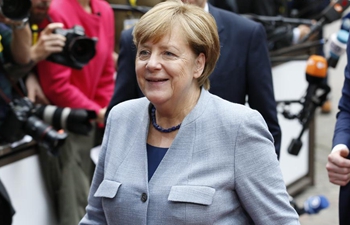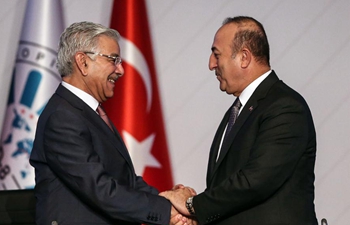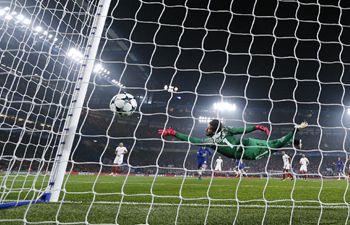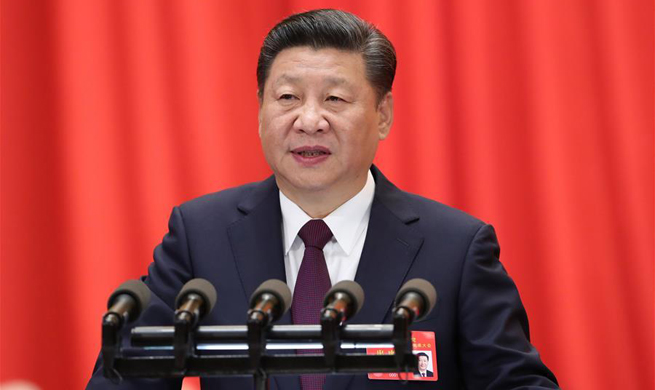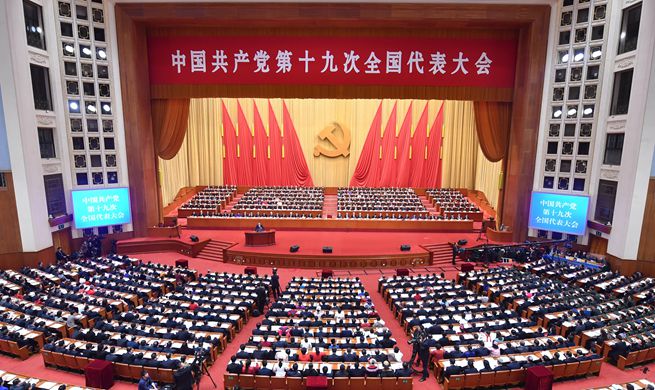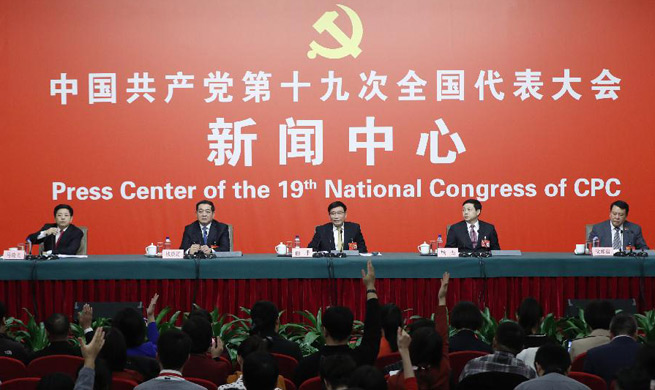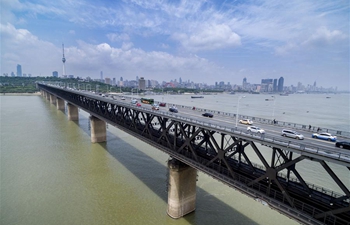LONDON, Oct. 19 (Xinhua) -- Despite weak monthly growth in British retail sales figures revealed on Thursday, the quarterly figures are buoyant, pointing to a possible rise in the bank rate in the coming months.
Retail sales volumes showed a monthly fall of 0.8 percent in September, below the consensus expectation for a 0.1-percent reduction, according to figures from the Office for National Statistics (ONS).
The annual rate of sales volumes at 1.2 percent is lower than the 5-6 percent rate seen towards the end of 2016.
The weakness was broad-based and seen across all sectors except online retailing. In volume terms, non-food store sales fell 1.5 percent, but this only reversed gains in August, when non-food stores saw the strongest sales.
Online retailing was the only component to see positive sales, up 2.3 percent over those in September.
However, the September figures came on the back of two months of strong figures, leaving the third quarter in a healthy position.
"Although September's retail sales figures were far weaker than expected, growth still maintained a fairly reasonable pace over Q3 as a whole," Ruth Gregory, UK economist with London-based data analysis firm Capital Economics, told Xinhua.
Consumer spending still rose by 0.6 percent over the third quarter after big rises in July and August. This indicates that sales, which account for around a third of overall consumer spending, will boost GDP growth in the quarter.
"With annual retail sales values growth remaining strong at about 4.5 percent, talk of consumers tightening their belts in response to Brexit uncertainty and higher inflation seems overdone," said Gregory.
Real income growth is negative in the face of inflation which hit 3 percent in September. The Bank of England (BOE) governor Mark Carney said this week that he expected inflation to move a little higher before falling back.
The inflation has been generated by sterling's large fall immediately after the Brexit vote but this is now passing through the system.
Gregory added that she doubted that the figures would dissuade the BOE's Monetary Policy Committee (MPC) from raising interest rates at its next meeting at the beginning of November.
A rise in the bank rate would be the first time the central bank has raised the interest rate since July 2007, when the rate was 5.75 percent.
A raise would mark a rewinding of the further monetary easing of 25 basis points the bank undertook last August in the wake of the Brexit referendum vote in June 2016.
This easing was undertaken to head off anticipated economic headwinds from the Brexit vote, and took the bank rate to a record low of 0.25 percent.




